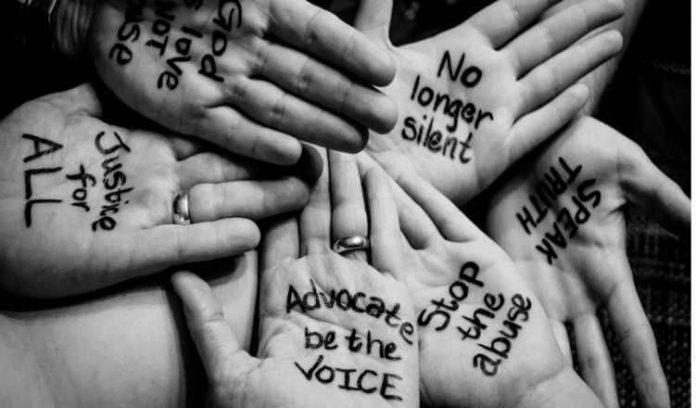This article is written by Priyanka cholera.
The Guest: Geeta Sajjanshetty, is an advocate practising in Karnataka High Court (Kalaburagi Bench) and she is a member of Juvenile Justice Board, Kalaburgahi.
The host: Sammanika Rawat, Placement Head, LawSikho.
How severe is the problem of child sexual abuse in India?
Pick up any newspaper or any other source you will find cases of childhood sexual abuse in every nook and corner of India. In the year 2007, there was a study done by women and child development, they released the reports that there are 53.2 % of children reported having faced more than one form of sexual abuse out of which 52.94% were boys, hence it is untrue that boys don’t get abused.
50% of abusers were people who knew the child personally, having a position of trust and responsibility. And most of the children do not report the act. Hence what the complaints filed are just the tip of the iceberg.
The National Crime Records Bureau released the report of Sexual Offences against children in 2018, the report showed that 21, 605 reports of rape were filed. 39, 827 reports were filed under the POCSO act, 2012; 2,322 reports were filed under the Immoral Traffic (Prevention) Act and 109 children are being sexually abused every day.
In comparison to these reports, The number of Cases reported is very minimal.
If you observe the report, you will find that a large number of offenders are those who know the Victim personally and have gained their confidence. Hence it is a myth that children are abused only by strangers.
If we look at the profile of the abuser-victim relationship, the highest percentage of abuse happens by neighbours, employers, relatives, etc.
What are the common myths associated with child sexual abuse?
- It is not well accepted in society that young boys are abused too, under POCSO Act 2012.
- There is another myth that says, only too lower class or upper class, it doesn’t happen in a middle-class family; it is important to understand sexual abuse happens across all classes.
- People assume that children if they are abused they will confide into parents or guardians immediately, which is completely untrue. Children who report the abuse are the ones who have suffered in silence for a long time. The offenders gain the confidence of children, and it is only after several instances of abuse a child reports it. Most of the time the child carries the guilt of action, questioning themselves if they have done something wrong. It takes a long period for the child to understand that what they’re suffering is wrong and no one has a right to touch them without their consent.
- It is the myth that abuse by family members is rare, the statistics state support that (in most cases) offenders are people whom children trust the most.
- Well educated and normal people don’t harm or molest children is also a myth.
- Home is also not the safest place for children. They have to be educated about their rights over their body.
Why was POCSO enacted?
India already has a handful of laws and legislations that have penalized Child Sexual Abuse, IPC covers a lot of crimes itself, then why the POCSO was enacted is a question to many.
It was enacted because the IPC was not very adequate to address sexual assault, sexual harassment, pornography, and sexual violence against boys. The sexual assault against boys could have been filed under unnatural sex provision section 377, hence it becomes very difficult to prove a crime under the said section. Additionally, the IPC did not specify the forms of abuse mentioned above. The number of reports and cases was increasing day by day and the conviction in rape was less. The then legal framework was not sensitive to children. Even adults are anxious and scared if they are summoned to appear in court, imagine the trauma on a child, who has to explain his/her experience. A child may not be able to express himself well in words.
India is a signatory to UNCRC (United Nations Convention of Rights of Children, Hence the POCSO Act was enacted to ensure a child-friendly procedure right from the stage of filing the report, as well as it fulfills the constitutional mandate of Article 15 (3), which talks about protection of women and children.

What are the features of the POCSO Act?
- The act defines various types of offenses, touch-based, non-touch based, penetrative, pornographic offenses, etc. in detail and doesn’t leave out any type of offense. All sexual abuses are defined under the act.
- The act also defines that every person under 18 years of age will be considered a child.
- The act has a feature of giving out compensation to the victim.
- Only The courts which have been designated as POCSO Court will have the jurisdiction to hear the matter under this act. If a case has elements of the SCST act or any other act which has a special court along with elements of the POCSO Act, the matter would be heard by the POCSO court.
- The concept of “Innocent till proven guilty” does not apply to POCSO cases, if a complaint is filed it will be presumed that the accused had the sexual intent.
- There is a child-friendly procedure under this act, every stage is designed with keeping in mind that a child should not feel uncomfortable at any stage and the identity, as well as the privacy of the child, is protected.
- If the child is going through abuse at home then the child will be relocated for care and Protection by the Child Welfare Commission.
- If a child needs medical care, then it must be provided by Government or Private hospitals or both, without any demands for registration of cases from the Victim, under the Act. The first aid has to be provided free of cost.
- If anyone has filed a false report with malafide intentions of ruining someone’s reputation, and it is proven then action will be taken against them. A case can be registered for false reporting.
- There is a provision for the mandatory report; if someone is aware that an offense under the POCSO act has occurred or will occur, and they do not report it then action can be taken against them. Because a child might not understand what is happening to them and they’re unaware of reporting, hence the onus is on the adults who are aware of it to report the crime.
Many times School Management is held and taken action against, for their efforts to ‘settle the matter’ or mediate it for the school’s reputation.
What are the offenses and their punishments under the POCSO Act?
- Penetrative sexual assault (section 3), includes penetration (of any object or body part) into any private parts or mouth of the child, manipulating any body parts of the child, making the child penetrate the offenders or any third person’s body.
- The penetrative assault becomes aggravated sexual assault (section 5) when the abuser is in the position of authority or position of trust or if the victim is related by blood or if the victim becomes pregnant, or if the child suffers injuries, or due to the penetrative assault.
- The offense of sexual assault (section 7), occurs when the abuser fondles the private part of the child or makes the child fondle the private part of the offender. This offense is touch-based and includes the sexual intent of the offender.
- The sexual assault becomes aggravated (section 9 sexual assault) depending on the relation of the abuser with the victim, nature of the assault, and impact of the assault.
- Sexual harassment (section 11) is non-touch based, sexual intent is required, there could be sexual content shared or shown to the victim over messages or other forms of communication. Any form of vulgar or abusive gesture is also considered too sexual harassment.
- Using the child for pornographic purposes (section 13), where storing any nude pictures of the child or filming of the nude child is considered to be an offense.
- Abetment ( encourage to commit offense) and attempt to commit an offense under POCSO is also punishable. Abettement will be punished with the same consequences as the offender and Attempt to Commit will be punished with half punishment as compared to the offender.
- A child can also be punished for offense, concerning the Juvenile Justice Act. Under the recent amendment of the Juvenile Justice Act, if the child has committed an offense which carries more than 7 years of Punishment, then that case will be heard by Children’s Court and punishment will be given as prescribed under the POCSO Act.
Chapter II of the POCSO Act has laid down all the offenses in detail.
In 2019 some punishments were amended and enhanced 2019 in the POCSO Act, e.g. –
- Punishment for Penetrative Sexual Assualt has been increased to Minimum 10 years and maximum Life Imprisonment.
If the offender is below 16 years of age then the minimum punishment is 20 years, along with Fine.
- The classification of the age of Minor has been introduced in 2019.
- Punishment for Aggravated Penetrative sexual assault has been increased to a minimum of 20 years of Rigorous Imprisonment. The concept of Death Penalty under POCSO Act has been introduced as punishment for Aggravated Penetrative sexual assault, along with Fine, etc.
The Accuser has paid the Pine to the victim and if he is unable to pay then his punishment will be enhanced by the Court.
Compensation will be provided by the government.
Who are the offenders under the Act?
The Act sports Gender Neutrality in the case of offenders, both male and female are punishable.
An offender can be:
- relative,
- Public Servant,
- Police, Member of Armed/Security Forces,
- Management/Staff of Jails and/or custodial institutions,
- Management/Staff of hospital, educational or religious institution,
- The person in the position of Trust or Authority,
- Owner, Management or staff of institution providing services to the child,
- A Juvenile can also be an offender.
On reporting of offences
Who can report an offense?
- Anyone including the child can report the offense.
- Even though ‘mandatory reporting’, it is understood to be the responsibility of the person who is aware of the act to report it.
- The specific obligation is on Media personnel, the staff of hotels, lodges, clubs – there have been incidents where a person along with the hotel has walked into the hotel and checkout within a few hours, in such cases where suspicion arises, the staff has to report to the Police.
- Hospitals – if any doctor has come across marks of sexual abuse on children they should report it after alerting the parents if the parents refuse, then it is the duty of the doctor to report it.
- studios or photographic facilities – if the negative of an abusive image has been submitted to develop then any person at the studios or photographic facilities must report it.
- The person in charge of any institution or company.
When to report an offense?
- If there apprehension that offense has been committed or is likely to be committed.
- If there is any knowledge about the offense being committed.
Where can the report be submitted?
- The report can be submitted to SJPU (Special Juvenile Police Unit) every police station has this unit. And they are supposed to be trained with child-friendly procedures.
- Local police – If the police refuse to record the offense, then it is an offense of not recording a sexual assault.
If the Police ask to report it to concerned Jurisdiction, then also they are obligated to record it as Zero FIR, and then Transfer it to Concerned Police station.
- The Judge.
How should the complaint be recorded?
- The case should be recorded in the simple language that the child understands what is being recorded.
- If the report is recorded in a language, the child doesn’t understand then a qualified translator or interpreter should be provided to the child.
- Whatever is being recorded in written form should be read over the child or the informant, it should be recorded in a book and given a number and a Copy of Complaint should be provided to the complainant.
What is the procedure for the police to record statements?
The statement has to be recorded where the child is comfortable, and not at night. There should be a female officer if possible, the officer should not be in uniform. The officer should not be below the rank of Sub-inspector.
A statement should be recorded in the presence of parents or any person a child trusts.
The statement should be recorded in an audiovisual manner and help of translator or interpreter
In the case of children with disabilities, the help of a qualified expert should be sought.

Recording of a statement by magistrate
The procedure and requirements are similar to that of the Police, the statement will be taken in Chamber of Judge, the child should be accompanied by a parent or trustworthy person.
What is the punishment for false reporting?
If a complaint is lodged to humiliate, extort or threaten or defame someone then the person who lodges the false complaint is punishable with imprisonment of 6 months.
However, a child cannot be held punishable for false complaints.
What is the procedure for medical examination?
Medical examination can be conducted irrespective of FIR being Lodged or not.
- It has to be done with registered medical practitioners in the government hospital within 24 hours of receiving the information about an offense.
- If Govt. Hospital is not available nearby so whichever hospital is nearby can be approached.
- Consent of the child must be obtained before the Medical Examination, it cannot be assumed.
If the child is below 12 years of age consent of Parents must be taken and if above 12 then the consent of the Child.
- If the child is reluctant about consent, then a counselor must be provided to help. But the child cannot be forced.
In case if the child decides to talk about the abuse years later of the incident, then there will be medical examination, statements, and circumstantial pieces of evidence that would be relied upon.
What are the provisions for medical care?
- As mentioned earlier, If a child needs urgent medical care, then it must be provided by Government or Private hospitals or both, without any demands for registration of cases from the Victim, under the Act. The first aid has to be provided free of cost.
- The privacy of the child has to be maintained, he/she cannot be examined in front of others.
- If the victim is a girl, then the test has to be done by a Woman Doctor.
- The test for HIV, STD, or Pregnancy should be done if required.
- The test for COVID should be done.
- Referral for Psychological Counselling should be given.
Steps to be taken by police within 24 hours
- Whenever the case is reported the police have to know whether it is a single event or series of events.
- If the child lives in an institution and doesn’t have any other access to care and protection then he should be provided with the same and The child should be produced before the Childcare and Welfare Committee (every district has one) and they will ensure the child has a shelter.
- If the child is homeless, doesn’t have parental support, or is in a place where there is recurring abuse then CWC will provide for care and protection along with necessary orders and place for a child.
- Police are obligated to take the child victim for medical examination within 24 hours.
- Police have to place the report before the Special Judge in the Designated Court as well as inform the CWC.
What is the obligation of SJPU/Police for providing information?
- After taking the complaint the police officer has to provide his/her name, contact details as well as the supervisors.
- Under the act, even though it isn’t practiced, the police have to update the child and the complainant regarding the proceedings and help them to avail compensation or Legal Aid.
What is the role of the child welfare committee?
As mentioned above, The role of CWC is to determine whether the child needs protection and take action accordingly. considering the best interest of the child. They have to involve the child before making any decision and if the child doesn’t have any family then the child’s will needs to be considered before making any decision.
What is a support person?
A support person is a child and Family’s helping hand. The support person can be appointed by CWC if the family expresses the same. The support person and keep the victim and his family updated about the proceedings, case, and potential outcomes. The support person has to provide the option of counseling if needed.
The support person has to keep all the information confidential and in no manner breach the trust.
What is provision for the protection of the identity of the child?
Schools, neighbourhoods, and Pictures of the child should not be released under any circumstances. Nothing can be published in media or social media unless otherwise is permitted by the court. No piece of information regarding the identity of the child shall be revealed. The case can be filed against media houses for doing the same.
The trial before the special court
- The proceedings shall be in camera (in presence of friends and family).
- There should be no third party that is not related to the case.
- The defense shall give the Judge questions in written format and the Judge shall ask questions to the child in a child-friendly manner. (this is seldom practiced in reality).
- While recording the evidence the presence of parents is necessary.
- The child should not be exposed to the sight of the accused.
- The accused should be allowed to hear what the child is saying, without violating the condition of no-visibility. To fulfill this there can be a curtain or something put in between.
- The cases are supposed to complete within one year and the evidence should be collected within 30 days.
What are the responsibilities of the special court?
- Breaks should be given during the trial.
- There should be no character assassination of the victim.
- Child-friendly atmosphere.
- Child to be accompanied by a trusted person.
- Questions asked to the child should not be aggressive.
- The identity of a child has to be protected.
What is the provision for compensation?
The compensation is given by the government because the government must protect its citizens and especially children. Every state has a victim compensation fund and the Judge shall decide how much is to be deducted for the victim.
Either victim can file an application for compensation or the court suo moto can provide compensation considering the injuries, harm, contact of HIV or being Pregnant, and the medical expenses incurred by the child.
The compensation should be given within 30 days of the order by the Court.
FIR is mandatory for compensation. Even if the accused is found not guilty. The compensation is given by the district Legal Authority.
If the child seems to extremely devastated after the incident then he/she shall be provided with the option for counselling along with compensation
What are the responsibilities of the State government?
- The government has to designate session courts as special courts in every district.
- It has to appoint Special Public Prosecutors for every special court.
- Train Judicial officers.
- Disseminate information about the act through the media.
- Frame guidelines.
- Make availability for the Victim Compensation Fund.
Every state has to form a Child Right’s Commission to ensure the implementation of the above responsibilities.
In recent Delhi high court judgment, it was observed that the bails were given under the POCSO act. Following the supreme court judgment for decluttering the jail during the Covid19 Pandemic. The court intervened and said that the bail cannot be given under the POCSO act without sending a notice to the Public Prosecutor, Family of the victim, or the Victim Himself.
Is there any time-limit for filing the complaint?
The act is prospective in nature, not retrospective, hence if the child has passed the age of 18 he/she cannot complain under the POCSO Act, they have to file a complaint under the IPC.
Questions by audience
What is the procedure if the child is being abused/bullied within the shelter home by senior residents who are also minor?
You can try and help the child to find a complaint box nearby to report it.
What if the victim confides in a person who is not related to e,g, a social worker?
If the child refuses to talk to anyone else, then you can file a complaint on behalf of them and try to be appointed as his support person.
Can consent be a defense to any of the charges under the act?
Many incidents like an elopement, where one or both parties are minor parents file a complaint under the POCSO act. Depending on the age of the victim. If she’s around 15-16 years old, consent won’t be defensive, even if the victim confirms the consent.
LawSikho has created a telegram group for exchanging legal knowledge, referrals and various opportunities. You can click on this link and join:
 Serato DJ Crack 2025Serato DJ PRO Crack
Serato DJ Crack 2025Serato DJ PRO Crack










 Allow notifications
Allow notifications


